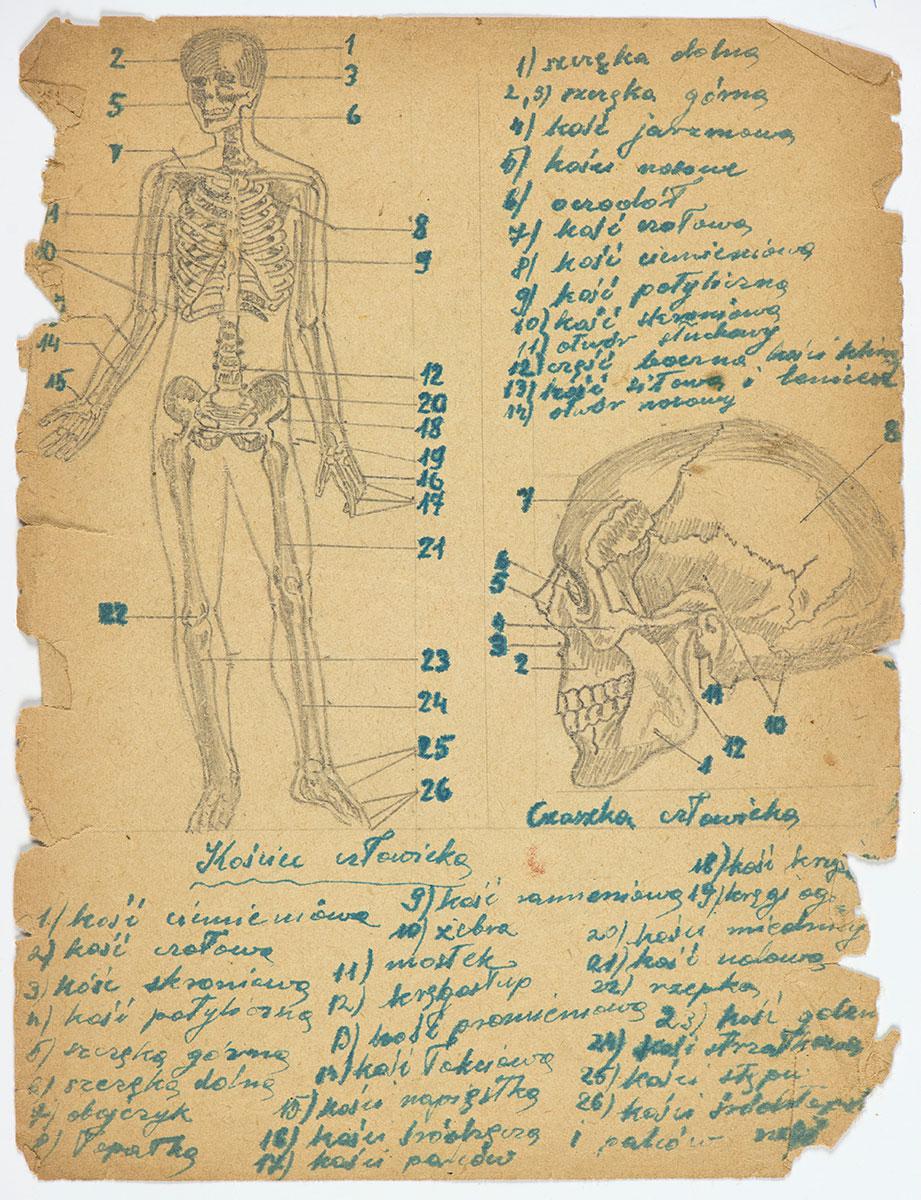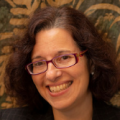
Yad Vashem Artifacts Collection
Donated by Jack (Kuba) Jaget, Hertzliya, Israel

In her epic short story "Tell Me a Riddle", American-Jewish author Tillie Olsen writes, "Heritage. How have we come from our savage past, how no longer to be savages – this to teach. To look back and learn what humanizes – this to teach. To smash all ghettos that divide us – not to go back – this to teach." Olsen's words, an educational axiom, beckon readers to reflect and contend with "our savage past."
In 2009, twin sisters Iudit Barnea and Lia Huber (nées Tchengar) were among the six Holocaust survivors chosen to light memorial torches during the annual Holocaust Martyrs' and Heroes' Remembrance Day State Opening Ceremony. "We never talk about the horrible things they did to us, not even to our husbands and children," declared Iudit and Lia in unison. Upon arrival at Auschwitz-Birkenau, the identical twins were taken to the" twins block." There, they were subjected to cruel and inhumane "medical" experiments at the hands of the infamous Josef Mengele. Theirs is just one story of many illustrating the impact of Nazi ideology on the medical profession. The repercussions of the so-called "medical research" and murderous experiments carried out during the Holocaust by Nazi Germans continue to reverberate in public discourse to this day.
Academic articles in medical and other research journals over recent years have drawn attention to the remains of victims of Nazi medical experiments in the University of Strasbourg in France, as well as research studies carried out in the Department of Medicine and Pediatrics of the Czyste Jewish Hospital in Warsaw, Poland.
During the Holocaust, many Jewish doctors could not uphold the Hippocratic Oath due to the insurmountable obstacles they encountered in Nazi ghettos and concentration and extermination camps. For example, in her memoir I Remember Nothing More, Dr. Adina Blady Szwajgier describes many of the dilemmas she and her colleagues faced in the Jewish Children’s Hospital in the Warsaw ghetto. She recalls how she administered morphine in order to prevent Jewish patients from being deported to their death by the Germans and their collaborators. This experience had a profound psychological impact on her, and she later became emotionally withdrawn as she contended with post-traumatic experiences.
Today many medical students, as well as those taking courses in the increasingly prominent field of Bioethics, discuss the Hippocratic Oath and contemplate the implications of the Holocaust. Haifa University's UNESCO Chair in Bioethics has published a Reader on Bioethics and the Holocaust that highlights many case studies from various perspectives. Coauthored by Tessa Chelouche and Geoffrey Brahmer, this online publication includes cases of perpetrators who conducted Selektionen and experiments, and victims who grappled with the dilemmas involved in saving themselves, their families and their communities under impossible circumstances. This resource also features documented testimony of Jewish medical personnel during the Holocaust. It enables students to search for information according to clearly defined themes and includes discussion questions for lecturers.
In July 2009, Dr. Esteban Gonzalez Lopez from the School of Medicine at the University of Madrid, and Professor Emeritus at Madrid University Rosa Ríos Cortés participated in a Yad Vashem educational seminar. Following their studies at the International School for Holocaust Studies, Prof. Cortes and Dr. Gonzalez Lopez developed a formal elective course for medical students at the University, entitled “The Holocaust: Lessons for Medicine." The course has been shown to be "a contributor to upholding and developing professional values. Holocaust and Medicine can be a paradigm to teach professionalism to healthcare professionals and should be incorporated into their curricula," they claim. Incorporating visits to Holocaust-related authentic sites, the innovative course has become a model inspiring others around the world.
Despite the passage of time, there remains a wealth of material to read and view about this subject. Having recently observed the 75th anniversary of the liberation of the former German Nazi extermination camp Auschwitz-Birkenau, it is incumbent upon all of those who care about the future of humanity to further grapple with many aspects of this complex history, including in the medical field.
Yad Vashem will host an online panel discussion entitled Do No Harm – Medical Ethics and the Holocaust, with Head of Yad Vashem's International Institute for Holocaust Research Prof. Dan Michman and renowned physician and expert in medical ethics Dr. Benjamin Gesundheit moderated by Yad Vashem Senior Historian Dr. David Silberklang on Thursday, 11 June 2020 at 9:00pm Israel Time/2:00pm Eastern Standard Time.












